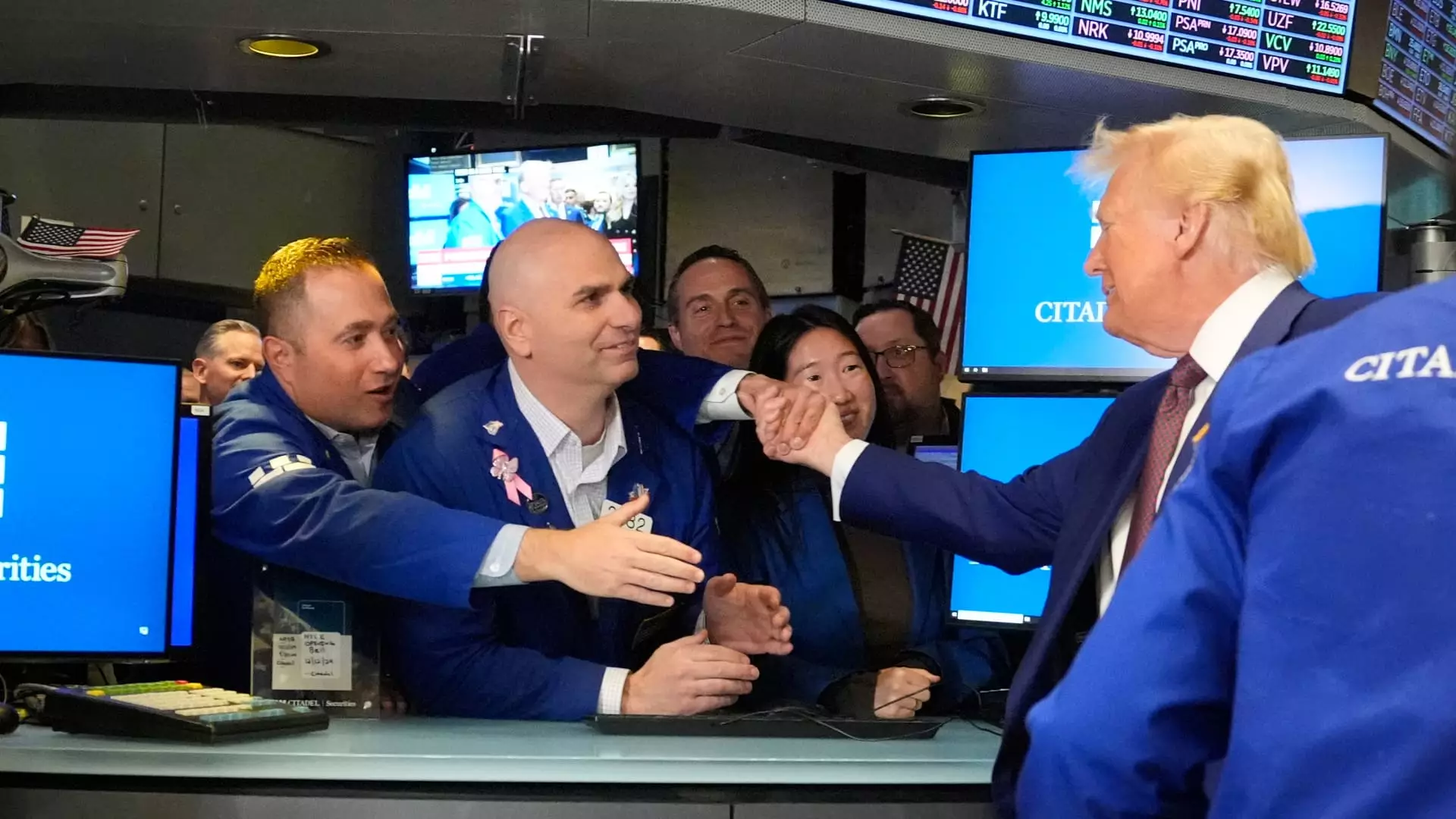On a significant Thursday morning, President-elect Donald Trump made a notable appearance at the New York Stock Exchange, an event that symbolized not just the beginning of his upcoming administration, but also the ongoing relationship between politics and the financial markets. Despite the excitement surrounding his inauguration, Trump chose a cautious approach by refraining from explicitly encouraging investors to purchase stocks as he prepares to assume office. This decision, articulated during an interview with CNBC’s Jim Cramer, underscores a prudent acknowledgment of the stock market’s unpredictable nature.
During Trump’s first term, the stock market exhibited remarkable growth, with the S&P 500 Index appreciating nearly 68% and frequently reaching new heights. This impressive performance can largely be attributed to the tax reforms initiated by his administration, which included significant corporate tax cuts. These measures reduced the tax burden on companies, incentivizing investment and expansion, and thereby contributing to the overall boost in stock valuations. Additionally, the Federal Reserve’s policy of maintaining near-zero interest rates played a crucial role, as these favorable monetary conditions further propelled investor confidence and market activity.
Future Tax Policies: Implications for Investors
In a recent address, Trump emphasized the potential for further tax reductions, an announcement likely to elicit mixed responses from the investment community. His proposal suggests a tax rate reduction from 21% to as low as 15%, granted that businesses contribute to local manufacturing. While such policies are aimed at encouraging domestic production, it remains to be seen how comprehensive these tax reforms will be and what tangible impact they will have on both the market and the broader economy. Investors and financial analysts will be keenly interested in the details and actual implementation of these plans.
Prominent Wall Street figures, including Goldman Sachs CEO David Solomon and hedge fund manager Bill Ackman, attended Trump’s ceremonial ringing of the bell. Their participation reflects the high stakes involved in the intersection of politics and finance. Ackman’s insights were particularly noteworthy; he suggested that the prosperity of businesses correlates directly to the welfare of the general populace, reinforcing the idea that a thriving stock market can uplift the broader economy. This perspective encapsulates the concept of “lifting all boats,” indicating that effective economic policies should benefit multiple sectors and contribute to job creation.
Looking Ahead: Optimism Amidst Caution
Despite his reluctance to urge immediate stock purchases, Trump’s long-term outlook remains optimistic. He reflected on the potential for the United States to stand out globally, suggesting a confident vision for future economic growth. However, this optimism comes with the caveat of being attentive to market fluctuations and economic indicators. The coming months will be crucial not only for evaluating the effectiveness of Trump’s proposed economic strategies but also for gauging investor sentiment in a post-pandemic economy characterized by uncertainty and volatility.
As we move forward, the relationship between Trump’s policies and stock market performance will be closely scrutinized. Investors are left to ponder how upcoming decisions will shape the economic landscape, balancing hope with the inherent uncertainty that defines the market dynamic.

